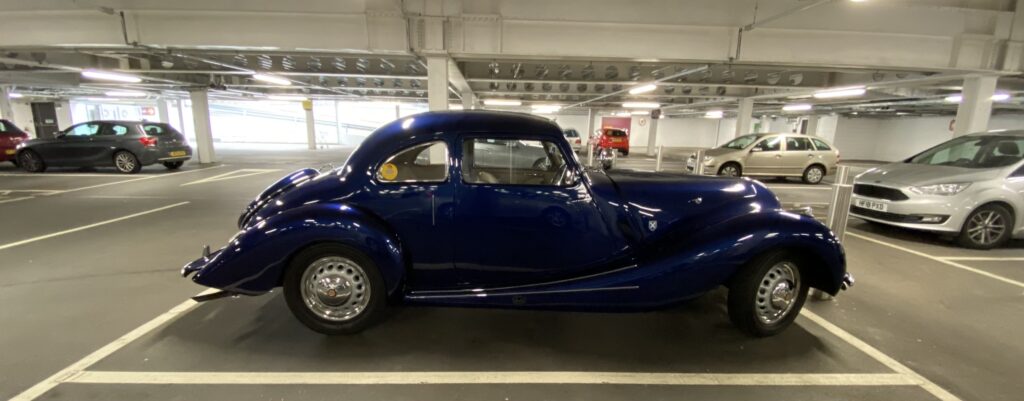Fancy wheels
A recovering petrolhead writes…
This is an absolutely pristine Bristol 400 spotted the other day in a supermarket car park. The 400 was the first car produced by a spinoff from the British Aeroplane Company (BAC) after the war, with a design inspired by two pre-war BMW cars. It was IMO the only beautiful car that Bristol produced.
Quote of the Day
“In newspaper work you have to learn to forget every day what happened the day before. Newspaper work is valuable up to the point it begins to destroy your memory.
- Ernest Hemingway (quoted in Mick Fealty’s fine piece which is today’s Long Read).
Musical alternative to the morning’s radio news
Joan Baez and Jackson Brown | Before the deluge | Live at the Beacon Theatre, New York
Many thanks to Ian Clark for the suggestion.
Long Read of the Day
If Populism is a rational response to how we chose to structure our political debates, we need to slow things down…
Great blog post by Mick Fealty about the implications of a loss of accountability in politics (and the reporting of it). It’s happening, he says,
partly because it (politics) has become more performative and much less informational and communicative. Autocratic politicians always do performance much better than pure democrats.
It’s key to their appeal. But in doing so they fuel a flight from the world as it is (with all its impossible and inconsumable complexity). Infinitude scares us, tires us, wears us down making us vulnerable to performative demagogic charlatans.
The dominance of polling in political reporting doesn’t help either. If popularity has become the new single currency why are we surprised that those who front load that quality come to dominate political debate?
Business air-travel:‘Forever changed’?
Bloomberg report (via Charles Arthur)
A Bloomberg survey of 45 large businesses in the U.S., Europe and Asia shows that 84 per cent plan to spend less on travel post-pandemic. A majority of the respondents cutting travel budgets see reductions of between 20 per cent and 40 per cent, with about two in three slashing both internal and external in-person meetings.
The ease and efficiency of virtual software, cost savings and lower carbon emissions were the primary reasons cited for the cutbacks. According to the Global Business Travel Association, spending on corporate trips could slide to as low as US$1.24 trillion by 2024 from a pre-pandemic peak in 2019 of US$1.43 trillion.
Business travel has “forever changed,” Greg Hayes, CEO of jet-engine maker Raytheon Technologies Corp., said in a Bloomberg Radio interview in July. About 30 per cent of normal commercial air traffic is corporate-related but only half of that is likely mandatory, he said. While the market may eventually recover, sophisticated communication technologies have “really changed our thinking in terms of productivity,” Hayes said.
Having saved billions from slashed travel budgets during the pandemic with only a marginal impact on operations, companies, banks, consulting firms and government offices will be hard pressed to explain why they’d return to their old ways.
They sure will. About time too. One of the (few) gratifying things about the pandemic was its revelation of how inessential (and frivolous) a lot of intercontinental business travel was.
This blog is also available as a daily newsletter. If you think this might suit you better why not sign up? One email a day, Monday through Friday, delivered to your inbox at 7am UK time. It’s free, and there’s a one-button unsubscribe if you conclude that your inbox is full enough already!

